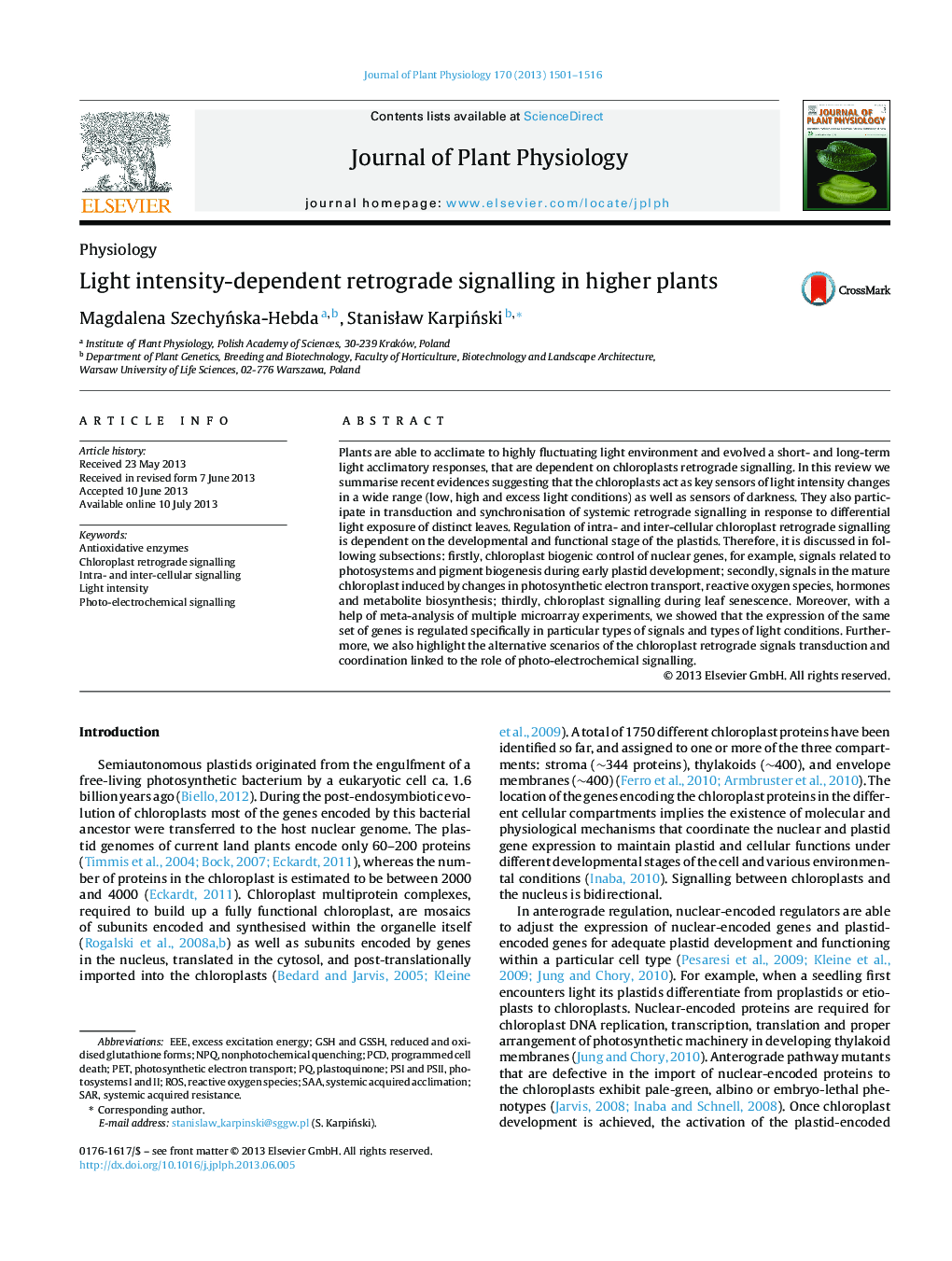| Article ID | Journal | Published Year | Pages | File Type |
|---|---|---|---|---|
| 2055950 | Journal of Plant Physiology | 2013 | 16 Pages |
Plants are able to acclimate to highly fluctuating light environment and evolved a short- and long-term light acclimatory responses, that are dependent on chloroplasts retrograde signalling. In this review we summarise recent evidences suggesting that the chloroplasts act as key sensors of light intensity changes in a wide range (low, high and excess light conditions) as well as sensors of darkness. They also participate in transduction and synchronisation of systemic retrograde signalling in response to differential light exposure of distinct leaves. Regulation of intra- and inter-cellular chloroplast retrograde signalling is dependent on the developmental and functional stage of the plastids. Therefore, it is discussed in following subsections: firstly, chloroplast biogenic control of nuclear genes, for example, signals related to photosystems and pigment biogenesis during early plastid development; secondly, signals in the mature chloroplast induced by changes in photosynthetic electron transport, reactive oxygen species, hormones and metabolite biosynthesis; thirdly, chloroplast signalling during leaf senescence. Moreover, with a help of meta-analysis of multiple microarray experiments, we showed that the expression of the same set of genes is regulated specifically in particular types of signals and types of light conditions. Furthermore, we also highlight the alternative scenarios of the chloroplast retrograde signals transduction and coordination linked to the role of photo-electrochemical signalling.
